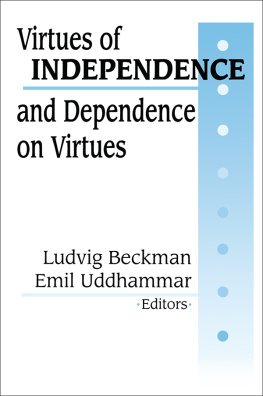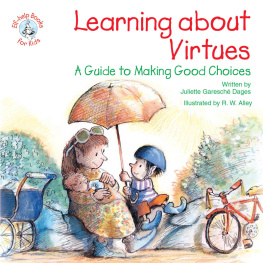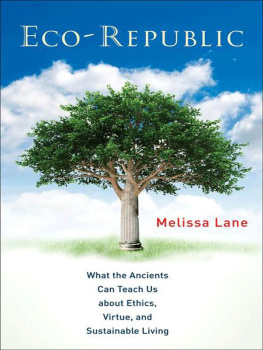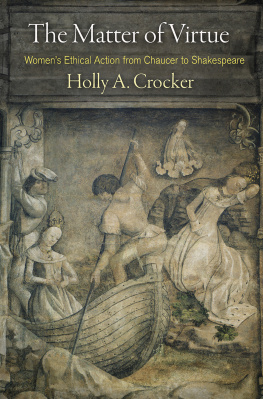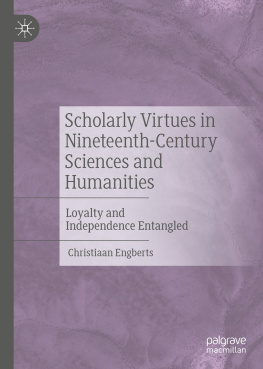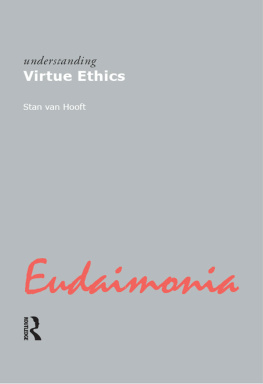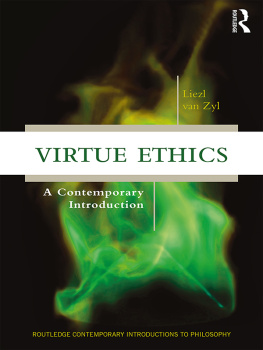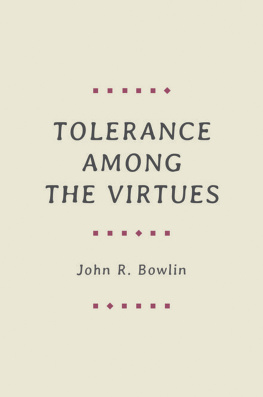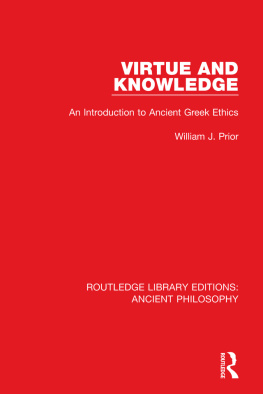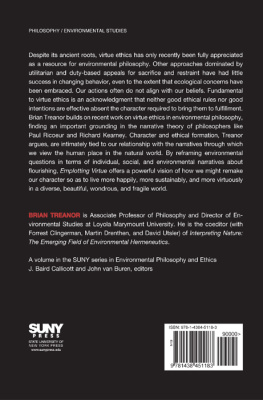First published 2003 by Transaction Publishers
Published 2017 by Routledge
2 Park Square, Milton Park, Abingdon, Oxon, OX14 4RN
711 Third Avenue, New York, NY 10017, USA
Routledge is an imprint of the Taylor & Francis Group, an informa business
Copyright 2003 by Taylor & Francis.
All rights reserved. No part of this book may be reprinted or reproduced or utilised in any form or by any electronic, mechanical, or other means, now known or hereafter invented, including photocopying and recording, or in any information storage or retrieval system, without permission in writing from the publishers.
Notice:
Product or corporate names may be trademarks or registered trademarks, and are used only for identification and explanation without intent to infringe.
Library of Congress Catalog Number: 2002020275
Library of Congress Cataloging-in-Publication Data
Virtues of independence and dependence on virtues / Ludvig Beckman and Emil Uddhammar, editors,
p. cm.
Includes bibliographical references and index.
Contents: Roots / Goran LantzReverence, respect, and dependence / Paul WoodruffAesthetic experience and virtue / Katarina Elam Autonomy's sources and the impact of globalization / John DunnPersonal independence and social justice / Ludvig BeckmanAutonomy and moral responsibility / Goran MollerThe politics of virtue in the French Revolution / Ruth ScurrVolunteering as virtue / Bryan S. TurnerThe relation between independence and trust / Emil Uddhammar.
ISBN 0-7658-0173-6 (alk. paper)
1. Virtue. I. Beckman, Ludvig. II. Uddhammar, Emil, 1957-
BJ1521 .V585 2002
179'.9dc21
2002020275
ISBN 13: 978-0-7658-0173-9 (hbk)
This is a book about virtues, in particular the virtue of personal independence. The subject can be introduced by considering the few who are endowed with an abundance of this virtue, e.g. the heroes of fiction, movies, and popular culture. Typically, heroes are not only strong and powerful, but also virtuous and independent. To some extent, this combination of character traits is paradoxical. This is so because modern heroeswhether we are speaking about Superman, the X-Men, or Batmanhave few social bonds but are at the same time exceptionally virtuous. Typically, fictional heroes have no citizenship, and few friendships or relationships; they don't, so to speak, belong anywhere. Still, they care for, fight, and protect a lot of people. Heroes are virtuous, strong, and independent, but seem to be in no need of relationships, emotions, or virtues to maintain these dispositions. This is the real sense in which the fictional hero is superhuman. Where people usually depend on others, and gain strength from their relationships, the fictional hero is able to create moral power from nowhere.
A clear illustration of this paradox is found in the late-1970s movie Mad Max. With a post-apocalyptic setting, it is a story of the last remaining site of civilization, Bartertown: a city fuelled by waste, built by slaves, an unhappy marriage of primitive technology and terror. In this chaotic and violent place we find the leading character of the movie, Mad Max, who is, unsurprisingly, an exceptional figure. Mad Max has the capacity to resist the norms of brutality that reigns in Bartertown and brings to this savage world something hitherto unknown: independence and virtue. The conflict with the rulers of Bartertown is inevitable, but the heroic dispositions of Mad Max eventually prove victorious. Mad Max destroys the evil forces and points out the direction of a new and better world which, alas, he is unable to share.
Despite the hostile nature of the world, Mad Max is able to maintain personal independence and virtue. The question naturally arises: What are the sources of his virtues? People watching the movie cannot expect to find an answer to this question. At a more general level, however, we hope that the readers of this book will. The ambition of this work is to explore the nature and the sources of the virtues of personal independence.
The assumption we accept as a point of departure is that personal independence is a distinct good, a virtue, of the modern, Westernized age. Whatever people may strive to realize in their livesfame, wealth, social status, or immortalitythere is a widespread conviction that each person has the right and privilege to articulate his or her particular vision of the good life. In this sense independence, understood either as autonomy, authenticity, or individuality, remains a fundamental value of our culture.
Yet, independence is not the sole virtue recognized in our societies. It will consequently be of interest to clarify the relation between the virtues of independence and other aspects of society. Thus, our subject calls for both normative and empirical analysis.
By normative analysis we will be able to decipher the conflicts between different norms, reasons, and values that are involved in the attempt to harmonize distinct virtues. When and why is independence valuable? Is the urge for independence something to regret or applaud? And how can we adjudicate when independence conflicts with other virtues?
By empirical analysis we will be able to describe and explain the relationship and manifestations between the virtues of independence and other phenomena. An important empirical issue is to clarify the empirical conditions of personal independence. More in tune with Confucius' teachings, and less in the spirit of the movie Mad Max, we assume that virtues must have neighbors." In fact, the idea of an organized society where people have no sense of goodness, tenderness, helpfulness, or braverywhere the notion of more or less worthy attitudes or behavior is absentis not just horrifying but probably also incoherent. Thus, despite momentary acts of terrorism and violence, the world as we know it is inhabited by people whose virtues keep the world going round. Virtue is not at home in the wastelands of terror. This is also why Mad Max is such an exceptional figure. In sum, we need to ask questions about the viability of personal independence. To what extent does the achievement of independence depend on the existence of other values and social practices?
As should be clear, speaking about virtues is not the unique privilege of the moralist. The category of virtues is a possible starting point for the systematic study of human values and behavior. Because the virtues are essential ingredients of our societies, we should take seriously the task to explore their dynamics, complexity, and value.
Besides this claim, we are making two more assumptions. First, virtues are part of ordinary life. The virtues are not primarily philosophical or abstract notions, but very much part of regular social life. Secondly, the virtues are a helpful category in the search for knowledge of the social world. The virtues do not simply constitute useful objects of study. There is also a heuristic value in bringing the notion of virtue back into the methodological arsenal of social and human sciences. It enables us to pose a number of new and pressing questions about our society.
One of the key arguments of Alasdair MacIntyre's now classic After Virtue was that the success of analytical philosophy in the twentieth century undermined our faith in questions concerned with the meaning and contents of the good life and the virtues. The validity of MacIntyre's thesis has been questioned and argued ever since. The most fascinating fact is, however, that MacIntyre's work can now be seen as a part of a broader movement that effectively has transformed the agenda of social and philosophical thought. As a consequence, the often-repeated thesis, that the virtues have been neglected, is no longer as true as it may have been.

